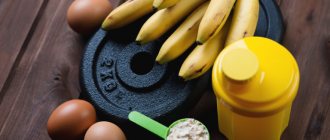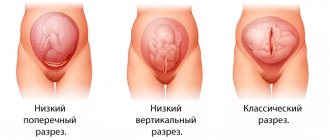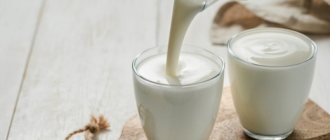As you know, wine and sport are in principle incompatible concepts. Alcohol, in addition to increasing blood pressure and increasing the load on the digestive and cardiovascular systems, also quite intensively destroys muscles. Therefore, athletes are not recommended to drink alcoholic beverages at all.
Of course, if you drink up to 100 g of light wine during recovery between workouts, then there will be no particular harm from this; a complete abstinence from alcohol is necessary only in the final phase of pre-competition preparation.
To find out whether you can drink wine while playing sports, and if so, in what quantity, you will need to consider this situation in more detail.
Harm and influence of alcohol on training
A large review of studies on the effects of alcohol on post-exercise recovery brings together findings on how alcohol consumption affects athletes' performance. Almost all of the studies cited show that, in one way or another, alcohol harms the recovery process and, as a result, training performance. Let's take a closer look at exactly how alcohol affects the body.
Reduces testosterone levels
Testosterone is a hormone that helps muscles recover and grow after exercise. Ethanol is toxic and suppresses testosterone production. Lean muscle mass will decrease, and due to the reduced rate of regeneration, muscles will not have time to recover between workouts. That is, all training aimed at increasing muscle mass will be meaningless if you drink alcohol in significant quantities.
At the same time, estrogen levels increase, which accelerates the formation of fat deposits and can also lead to breast cancer.
Impairs brain function
Coordination deteriorates and reaction time increases. If a person is learning new skills and abilities in training, improving technique, or playing a sport that requires quick reactions and instant decision-making, alcohol will interfere with all this. In addition, this increases the risk of injury.
Interferes with protein synthesis
Alcohol affects the body's ability to absorb protein. Due to the high toxicity of alcohol, the body first neutralizes ethanol, the metabolism of proteins, fats and carbohydrates fades into the background. In addition, alcohol has a negative effect on the digestion of proteins, the absorption of amino acids in the intestines and the synthesis of proteins in the liver.
Increases cortisol levels
Cortisol is a stress hormone that the body releases into the bloodstream in critical situations. It turns on emergency mode, allowing the body to get additional energy to cope with a difficult situation. But, firstly, it increases the breakdown of protein in muscles, and as a result, causes loss of muscle mass. And secondly, elevated cortisol levels can lead to health problems. The body cannot exist in emergency mode for a long time; it needs to recover. Alcohol prevents this.
Causes dehydration
Alcohol speeds up the loss of water from the body because the kidneys need to use a lot of fluid to break down the alcohol. It may take several days for the body to restore fluid. Even mild dehydration affects muscle function: it is more difficult for them to contract, it is easier to get sprains or cramps, and excessive tension in the muscles. This reduces strength and endurance.
Reduces muscle strength
Muscle strength decreases: according to research, 36 hours after drinking alcohol, a person’s muscles are 30% weaker than in normal conditions.
Eat, drink, be merry
When you go to a wine bar, you order a standard wine plate: cheeses, nuts, dried fruits. We translate: fats, calories and sugar. A regular cheese plate is 650 calories per serving, and it's not the healthiest thing you can snack on. Yes, there are reasons why wine is traditionally served with delicious cheeses. There's no arguing with that, but there are healthy alternatives.
If you're going to a party, a good tip is to eat something beforehand. This way you will save yourself from overeating.
Is it possible to drink alcohol before training or immediately after?
If we are talking about absolute benefits or harm, then, of course, you should not drink alcoholic beverages either before or after training. For the reasons stated above, alcohol reduces the effectiveness of training and can lead to injury. But if you do drink or plan to do so, what kind of break should you take before or after training?
How long before training can you drink?
Under no circumstances should you engage in sports while intoxicated. Such training will lead to injuries and excessive stress on the heart and circulatory system.
To return to training, you need to wait until alcohol is completely removed from the body (on average an hour for one drink, up to three hours after two). You need to eat heavily and compensate for the loss of fluid, and also refrain from heavy loads in the first workout after the party, limiting yourself to an easy level of load.
How long should it take after training to start drinking?
The worst option is to allow yourself to drink immediately after training. It is at this time that the body recovers most intensively and drinking alcohol will not allow it to fully complete this work. And recovery is a necessary component for training progress. You need a break of at least 6 hours after finishing your workout.
The effect of alcohol on weight and general condition of the body
Drinking alcohol makes it easy to gain excess weight. Alcoholic drinks are a very high-calorie product. Moreover, alcoholic drinks are empty calories; they do not contain proteins, fats or complex carbohydrates. There are 710 kilocalories in 100 grams of pure alcohol, although the peculiarities of the digestive system mean that about 550 are absorbed. Unlike pure alcohol, alcoholic drinks contain a small amount of macronutrients, mainly simple sugars. That is, for example, one glass of wine contains 120-150 kcal, and a glass of beer contains 200 kcal. Interestingly, you can even get B vitamins from wine, which was in the original product - grapes.
But besides this, alcohol irritates the walls of the stomach and increases appetite. Pay attention to how much you eat when you drink alcohol. In addition, metabolism is disrupted, which contributes to the accumulation of subcutaneous fat. If you drink alcohol and want to lose weight, then the first and easiest step to achieve your goal is to eliminate alcoholic beverages.
A moderate dose – exactly how much?
To a specific question, a specific answer. The risk of deterioration in health is minimal when drinking 100 g of pure alcohol per week or 10 g per day. 10 g of ethanol is equivalent to 32 ml of strong alcohol (40%), 106 ml of wine (12%), 244 ml of beer (5%). A dose of up to 20 g of pure alcohol is considered moderate. With it, the feeling of euphoria due to the stimulation of the synthesis of one’s own endorphins (pleasure hormones) is preserved, and the negative effect in the form of a hangover is minimal. A poisonous dose with manifestations of alcohol intoxication is 40 or more grams of ethanol.
It should be noted that these data are statistical averages and do not take into account the individual characteristics of the body - weight, concomitant diseases, general physical condition, sensitivity to individual ingredients of alcoholic beverages, etc.
Myths about drinking alcohol while exercising
- Myth 1: drinking alcohol does not affect athletic performance; there are athletes who drink. Unfortunately, this is not true. And athletes who did drink alcohol would be able to achieve better results by giving up alcohol.
- Myth 2: alcohol is a liquid, which means it is good for the body . On the contrary, alcoholic drinks lead to dehydration.
- Myth 3: You can afford to drink after a workout . In addition to the fact that this negatively affects the body’s recovery after exercise, it also perpetuates a pattern of behavior in which exercise is rewarded with alcohol. This habit can lead to alcoholism.
Genetics of alcoholism
I often talked to people who justified their weakness in relation to alcohol by genetics.
Who said that their grandfather drank or their dad drank, that it was in their blood and they would be drawn into it anyway (or at that time it had already been drawn in).
Let's dive a little into history.
In 1960, G. Eplinek first voiced the concept of alcoholism as a disease.
These views were quickly picked up and, naturally, the question arose about the biological causes of alcohol dependence.
Numerous studies have been conducted in Chile, Finland, and the USA on rodents, which have shown that heredity influences (in 60% of experimental rats and mice) drowsiness and other reactions, but, most importantly, cravings for alcohol (1991 study by Crabbe and Harris ).
After this, talk about alcoholism as a family disease only became stronger.
There has long been an opinion about alcoholism as a “family disease,” but only 30 years ago scientists took this issue seriously.
According to most scientific works, the genetic component accounts for about 40-60%. As we can see, this is not a 100% indicator. Accordingly, external factors play an extremely important role in individual predisposition to alcohol dependence, namely the SOCIAL ENVIRONMENT!
It is very difficult to find the so-called. "alcoholism gene" The area of research related to the reasons for the low commitment to alcoholism among Asian people is now developing very successfully.
This is due to the genetic characteristics of enzymes that are involved in the metabolism of ethanol and acetaldehyde.
For example, people with high alcohol dehydrogenase activity and low aldehyde dehydrogenase activity cannot drink large amounts of alcohol. Roughly speaking, in such people alcohol is quickly absorbed, but slowly adsorbed (utilized).
There are many studies on the topic of alcoholism, many of them are very contradictory, but one thing can be said is that certain genes are involved in the predisposition to alcoholism.
Of course, the question is complex. Since man is a social animal, external factors also play an important role. If a child sees alcoholic parents from childhood, then the “good and bad” guidelines shift, which removes certain psychological barriers to drinking alcohol.
It happens, of course, the other way around, when parents’ craving for alcohol turns the child away from it, which is usually caused by psychological factors. There is definitely a correlation between genetics and alcoholism, but this is not the only factor that determines a person’s fate.
How compatible are alcohol and exercise?
Despite all the negative factors listed above from drinking alcohol, you can combine it and training if you do not set serious sports goals. If you play sports just for fun, not for health improvement, weight loss or muscle gain, if you do not strive for records, sports ranks or improved results, then a bottle of beer or a glass of wine is not critical. You can afford moderate alcohol consumption.
But if sport in your life is a serious hobby, then it is impossible to combine it with drinking alcohol.
Photo: unsplash.com/rashid khreiss, Marwan Abdalah, Jabo Elysee, Giovanna Gomes
How to solve an alcohol problem?
Not every person can cope with alcoholism on their own. There are many known cases of promising athletes leaving sports due to problems with alcohol. The thing is that alcoholism is a disease, and accordingly it needs to be treated. And this should be done by professionals - narcologists.
By turning to the Ugodie drug treatment clinic for help, we will help you or your loved ones cope with the problem. We are located in Moscow, but a lot of people come to us from the Moscow region.
Our advantages lie not only in the cost of treatment, but also in quality. The entire process is carried out under the supervision of experienced doctors. It is possible to be treated in a hospital or on an outpatient basis. If necessary, we can offer primary assistance for withdrawal from binge drinking at home.
We use modern and traditional effective methods; depending on each specific case, we select the appropriate method. We approach each patient individually. We use medication and alcoholism treatment. All that is required of you is to call us by phone or and explain the situation. Our patients who have completed the full course of treatment forget forever about the problem of alcoholism. We employ doctors of different specializations, and the clinic itself has been operating for many years, as you can see by looking at our licenses.
It is impossible to play sports and drink alcohol. Many people think that a glass of wine or a glass of beer cannot have much effect on the body. This is their main misconception. Alcohol can ruin your life and the lives of your loved ones. Is it worth it?











